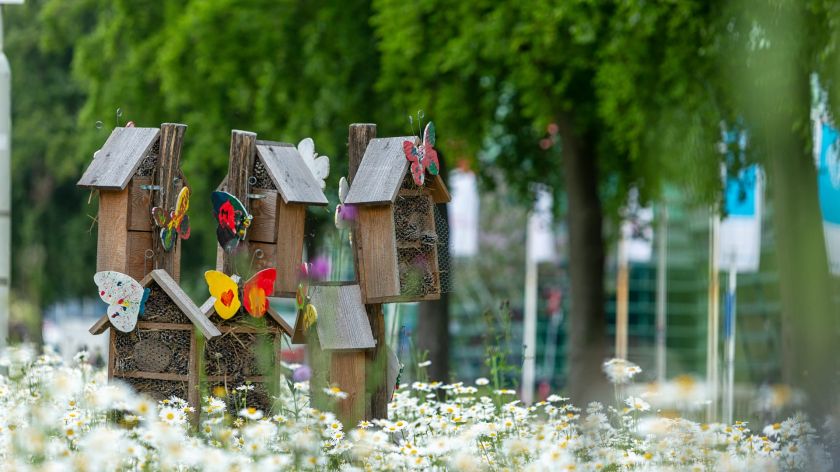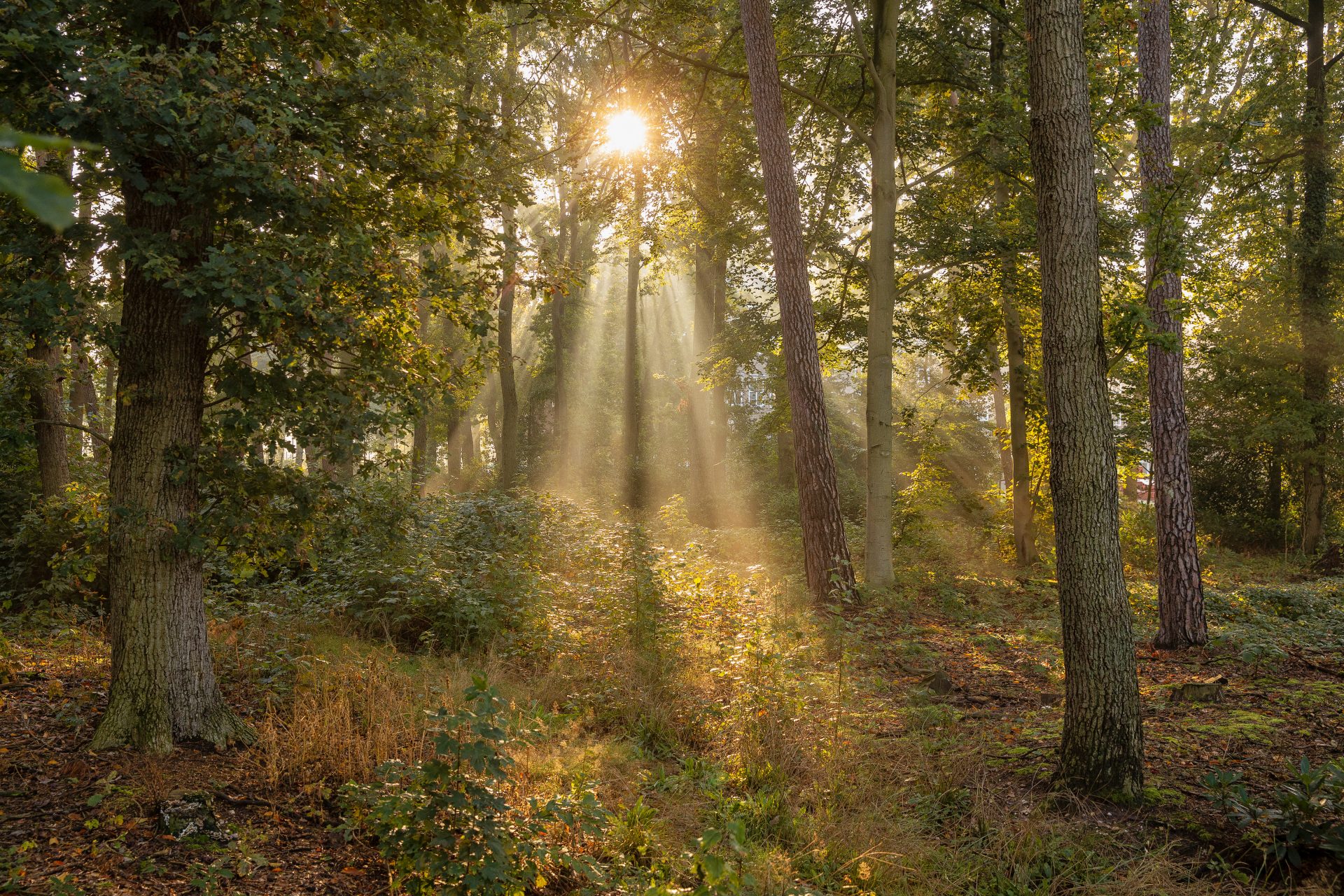-
 Photo: Dick van Aalst
Photo: Dick van Aalst
Is it useful to grant rights to the nature on the grounds of the university and hospital? Advisors Guido van Gemert and Sander Turnhout think the answer is yes. ‘The next emancipation is that of the non-human lifeforms on our campus.’
Mountains, lakes, or rivers with rights – it doesn’t happen too often yet, but globally more and more nature reserves are granted the status of a legal entity. Guido van Gemert, environmental advisor at the Radboudumc, and Sander Turnhout, strategic advisor of the research group Healthy Landscape, think that the hospital and university can learn something from that development. The advisors propose establishing a nature council that can defend the rights of campus nature during participation council meetings.
‘Practice what you preach, also as a university’
The first steps in that direction have been taken. The boards of the hospital and university gave the green light last summer to start investigating the possibility and feasibility of a Radboud Nature Council. A yet-to-be-composed group of researchers at Healthy Landscape will soon dive into the issue.
Insects
The reason for this is worrying results of scientific research. A whopping 76 percent of flying insects has disappeared, is what Nijmegen researchers Casper Hallmann, Hans de Kroon, and their colleagues discovered in 2017. Because of serious implications for life on earth, the research went global.
‘Shocking results’, Van Gemert says on the phone. For Sander Turnhout, the insect research was a reason to take a closer look at the campus policy as well. ‘Practice what you preach’, says Turnhout, ‘also as a university.’ According to the advisor, you can see the biodiversity crisis on campus, for example in the central median of Heyendaalseweg. ‘Insects from forest areas in the wider area come there. There is a lot of food there. But they cannot reproduce in that strip, because at a certain point in time it is simply mowed. So it’s an ecological trap.’
Biodiversity restoration is a key theme in the university’s campus plan, and the green space policy has changed – for instance, less mowing is done in some places. Still, according to Van Gemert and Turnhout, it would make sense to grant nature rights. Turnhout: ‘Currently, you must speak with incredible persuasive power to get rid of a few stones and be allowed to put up a tree. You just have to turn that around. The basis is nature, and then if you want stones, you have to argue that.’
Moreover, there is a principled reason to grant rights to nature, the advisors believe. It is a matter of emancipation, they both say. Turnhout: ‘In the last century, Catholics emancipated themselves, women, and students. Now, for example, we have a student council, which represents the interests of students. We think: the next emancipation is that of the non-human lifeforms on our campus. Their interests should also be included in our policies.’
Questions
Much is still unclear about the substantive details of the plan. What rights would campus nature get? How would these be defended? What are the implications for staff and student behaviour, and for construction? Van Gemert: ‘That’s the downside if you’re a bit ahead of the curve, you don’t have many examples. So that’s what we’re going to find out. We want to ask the scientists at Healthy Landscape how it would work if nature were granted rights, and what that would mean for us. Of course, we want to be able to continue functioning as a university and hospital as normal.’
‘Plant heather bushes here, sand lizards will sit in them!’
What the campus would look like is also still unclear, although Turnhout can imagine: fewer tidy stones, more messy nature. ‘Currently it’s like a garden centre’, the advisor says with noticeable frustration. ‘The grass is milled, you have parks and shrubs. Everything is landscaped if you want to put it more positively. Then I cycle past these neat bushes and think: plant heather bushes here, sand lizards will sit in them!’
Nature reserve
Turnhout and Van Gemert hope that the Radboud Nature Council will become a reality next year. First, they wait for the advice of the interdisciplinary group of Healthy Landscape researchers. Van Gemert is optimistic about the outcome. ‘I think the chances of it succeeding are quite high, especially if the importance of a nature council will soon be well supported by our own scientists. I have high hopes.’
Turnhout already has further dreams for the future. ‘Turning the campus from a garden centre into a nature reserve is my goal. The idea is to qualify for Natura 2000 in the future.’ It’s an ambitious plan, he realises. ‘The Radboud campus would be the first in Europe to become a nature reserve. But in nature conservation, we should not play defensive football. Instead, we need a flight forward.’
Translated by Jan Scholten.




